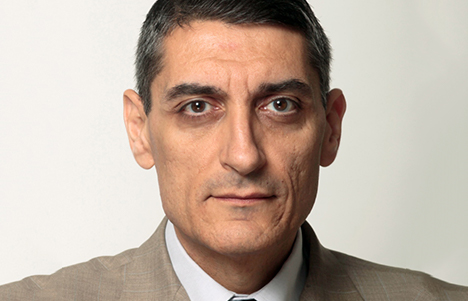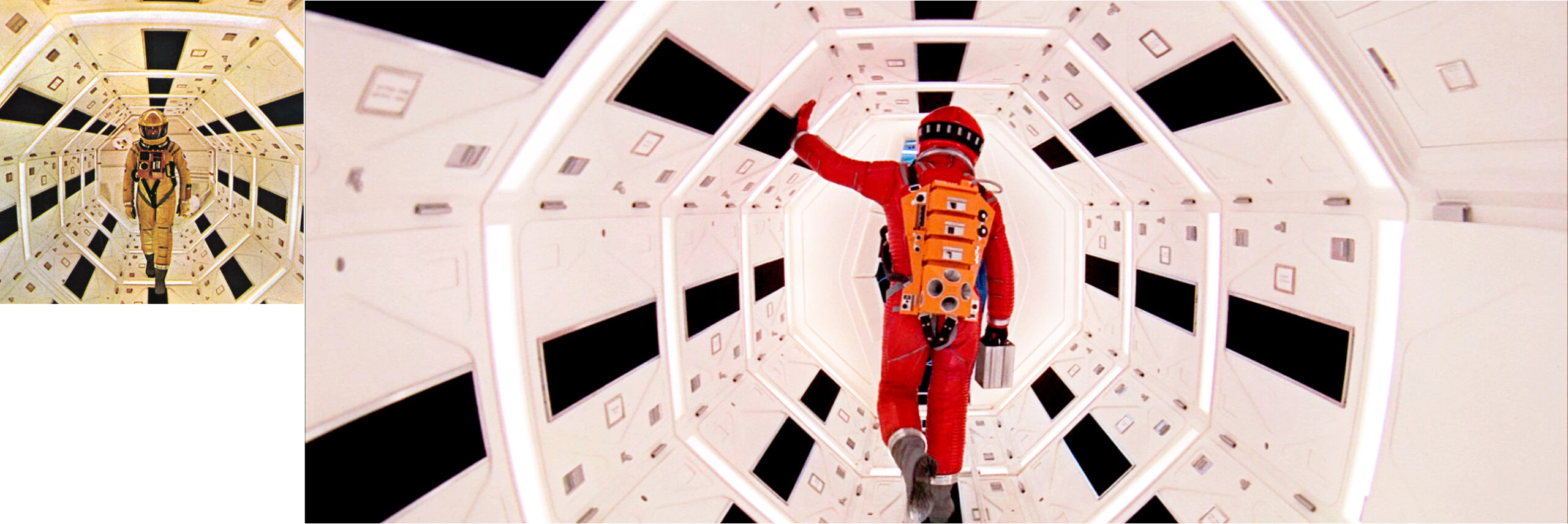
2001: A Space Odyssey
Cabaret Cinema: Time—Series Kickoff
Friday, February 16, 2018
7:00 PM–9:35 PM
1969, Stanley Kubrick, USA, 142 min.
Introduced by physicist Massimo Porrati
Celebrate the kickoff of our film series Cabaret Cinema: Time with one of the most iconic films in cinematic history. Almost fifty years since its release, Stanley Kubrick and Arthur C. Clarke’s dazzling cinematic magnum opus challenges our understanding of the evolution of mankind and the nature of consciousness. Clarke was deeply influenced by Buddhism; Kubrick believed profoundly in the impact of cinema (the mysterious black monolith uncovered on the moon match the screen ratio precisely). Together they fashioned a thriller that both questions our perception of linear time and our dependence on artificial intelligence.
“The picture that science fiction fans of every age and in every corner of the world have prayed (sometimes forlornly) that the industry might some day give them. It is an ultimate statement of the science fiction film, an awesome realization of the spatial future”¦it is a milestone, a landmark for a spacemark, in the art of film.”
—Los Angeles Times, 1968
“Stanley Kubrick’s venture succeeds as dazzling visual art.”
—TIME Magazine
With its Academy Award-winning special effects and timeless classical score, 2001: A Space Odyssey offers a majestic viewing experience of multi-millennial proportions.
About Cabaret Cinema:Time
Curated by Rubin Museum fellow and neuroscientist David Eagleman, Cabaret Cinema delves into the mysteries of time. Aside from their listed duration, movies often carry us through periods far beyond the minutes that pass as we sit in a theater. Time lingers in suspense, is driven forward by fast-talking dialogue, or warps through sudden flashbacks. What does the world of cinema reveal about our experience of time?
About the introducer

Massimo Porrati watched 2001: A S”‹pace Odyssey for the first time in a second-run cinema in his hometown of Genoa, Italy, in 1972. He watched it again and again throughout his university years at the Scuola Normale Superiore in Pisa, and “‹during his”‹ postdoc years at UCLA and UC Berkeley. Porrati was a Fellow at CERN in 1991″“92 and has been on the faculty of the New York University department of physics since 1992. His research is focused on gravity at very short distances (including quantum gravity, strings, and theories of high-spin particles) as well as at very large distances (cosmology, long-distance modification “‹of gravity, massive gravitons). Porrati has held many visiting positions, among them a Marie Curie Excellence Chair from the European Union in 2005″“2008, and a Miller Visiting Professorship at UC Berkeley in 2015. He is currently—and much to his chagrin—Director of Graduate Studies for his department. He still watches 2001 occasionally.
Brainwave is supported in part by public funds from the New York City Department of Cultural Affairs in partnership with the City Council.


